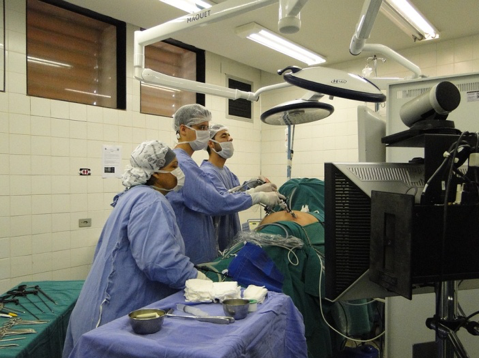Swollen prostate or benign prostatic hyperplasia is a common condition in men wherein the prostate glands enlarge, growing much bigger than their normal size. If you experience prostate swelling, your chances of developing urinary symptoms increase. Uncomfortable and painful symptoms, such as difficulty in passing urine from the bladder, can ensue. This can potentially lead to kidney, urinary tract, and bladder problems.

(Source)
You can seek medical help and get this condition treated. Your treatment options may include surgery, invasive therapies, and medications. The doctor will recommend a treatment plan after analyzing the severity of your condition. They will consider the prostate size, your symptoms, and other factors.
Symptoms for Swollen Prostate
The symptoms of this condition increase over time. Also, the severity may differ from one person to another. Therefore, you have to visit a professional urologist after observing these signs and symptoms:
- You will find difficulty while urinating
- Increase in urgency and frequency to urinate
- You will develop Nocturia
- You won’t be able to empty the bladder
- Dribbling
- Weak urine stream
Here are some less common symptoms of swollen prostate:
- Blood in the urine
- Inability to urinate
- Urinary tract infection
The severity of your symptoms does not depend on the prostate size. The pattern of the symptoms is irregular. Some men recover with time, but the severity increases for others. Some men with an enlarged prostate may notice minor symptoms, while others may face significant symptoms. It is possible to confuse benign prostatic hyperplasia with these conditions:
- Prostatitis or prostate inflammation
- Urinary tract infection
- Kidney or bladder stones
- Urethra stricture or narrowing of the urethra
- Bladder or prostate cancer
Causes of Swollen Prostate
The prostate gland is near the bladder. When the prostate expands, it blocks the urinary tract stretching out from the bladder passing through the prostate. The role of this tube is to transport urine to the penis. A blockage of the urinary tract negatively affects your ability to pass urine out of the body. The actual cause of swollen prostate is unclear. However, the change in sex hormones with increasing age can be a factor.
Swollen Prostate Treatment Options
It is possible to treat your swollen prostate with lifestyle changes and self-care. Effective lifestyle changes include reducing alcohol and caffeine, going to the bathroom without waiting, and Kegel exercises. If you notice an increase in the severity of the symptoms, you need to consult with a urologist. They will diagnose your condition and suggest optimal treatment for relief.

(Source)
The treatment may vary, depending on your health condition, age, and prostate size. Therefore, you need to visit a professional clinic for proper treatment. Do you live in NYC and experience the above-mentioned symptoms? If so, visit the Fifth Avenue Urology and consult an experienced urologist for better treatment.
Here are some treatment options that the urologist will suggest:
Drugs
When you do not find any relief from lifestyle changes, you should visit an expert urologist. They will recommend medication for relief. Some medication commonly prescribed to treat a swollen prostate include:
- Alpha-1 blockers
- Antibiotics
- Hormone reduction medications
Surgery
Depending on your condition, your urologist may also recommend surgical procedures. There are different types of treatments to treat a swollen prostate. Whether the procedure is minimally invasive or non-invasive, urologists will perform these surgeries in their clinic or office. However, other treatments are invasive, so your surgeon may perform them at a hospital.
-
Outpatient Procedures
During the outpatient procedure, the doctor will insert an instrument in the prostate gland through the urethra. These surgeries include:
- Transurethral Needle Ablation is a treatment option that uses radio waves to shrink prostate tissues
- Urologists may suggest transurethral microwave therapy to eliminate prostate tissue using microwave energy
- Water-induced thermotherapy is a technique that includes heated water to damage the excess prostate tissue
- Urologists also use implants to lift the swollen prostate preventing the blockage of the urethra
- They also use water vapor to eliminate the excessive tissues using transurethral water vapor therapy.
- Using sonic energy for removing prostate tissue is also a common treatment. You can refer to this procedure as high-intensity focused ultrasonography.
-
Inpatient procedures
-
The urologist will recommend inpatient or invasive procedures if you experience these symptoms:
- Bladder stones
- Incontinence
- Kidney failure
- Recurrent urinary tract infections
- Inability to clear the bladder
Here are some invasive treatments for swollen prostate:
- Simple prostatectomy is a treatment where urologists will remove the inner part of the prostate by an incision in the perineum or abdomen.
- Urologists may also remove the prostate using transurethral resection of the prostate or TURP. In this procedure, the surgeon will insert an instrument to eliminate excessive tissues piece by piece.
- Transurethral incision of the prostate is similar to TURP. But, instead of removing the prostate tissue, urologists will make a tiny incision, enlarging the urethra and bladder outlet.
Swollen Prostate: Conclusion
A swollen prostate may result in severe consequences. Therefore, you need to visit a professional urologist before the situation grows worse. So, if you are experiencing the above-mentioned symptoms, visit a urologist. At Fifth Avenue Urology, we follow the best treatment procedure for benign prostatic hyperplasia.
Contact us now at 212-675-3186 to make an appointment with one of the best urologists in NYC.

[…] enlarged prostate […]